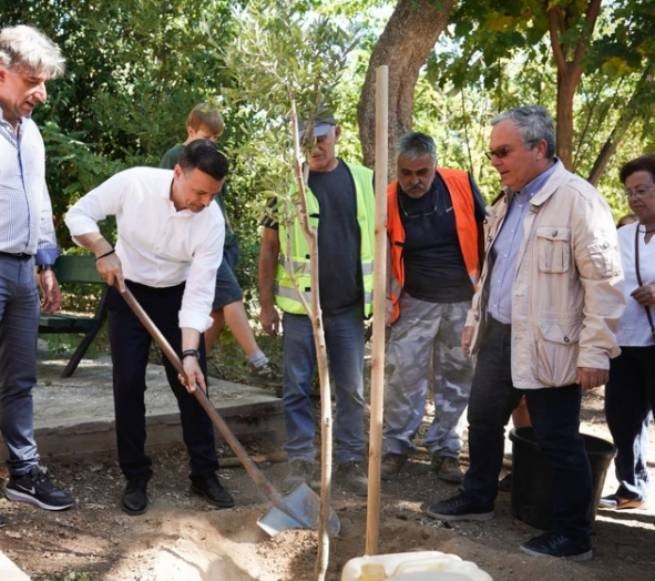Greece is one of the oldest countries in the European Union, and 23% of its population is over 65 years of age. These data were presented by IDEM Research Director Vironas Kotsamanis on the occasion of tomorrow's International Day of Older Persons.
Unlike other European countries, in Greece this date usually goes unnoticed, although the aging population is a major concern. Since the beginning of the first post-war decade, the country's total population has increased by 39%, the number of people over 65 has grown 4.6 times (from 520 thousand to 2.4 million), and the number of people over 85 has increased 20 times (600 thousand today compared to 30 thousand in 1951).
Byron Kotyamanis, director of the Institute for Demographic Studies and Research (IDEM), emphasized this in an interview with the Athens-Macedonian News Agency on the occasion of the International Day of Older Persons, which has been celebrated since 1990 on October 1.
With 23% of the population aged 65 and over, Greece is currently one of the oldest countries EU and would remain with this group for the next three decades.
However, Greece is characterized by strong spatial variations: the percentage of people over 65 years of age ranges from 12.6% (minimum, Mykonos municipality) to 33.9% (maximum, Evrytania municipality). Thus, according to Kotsamanis, we We are moving towards an explosive combination of “aging” and “super old age”» in more than one of the four prefectures of our country.
Long before 2050, Greece will have a group where a third of the population will be aged 65 and over, and a quarter of them will be “super-aged”.
“Given the decline in marriage and the rise in divorce in the generations since the 1970s, we will have more and more people who will find themselves aged 65 and over with very few people in their immediate family circle. Thus, the welfare state, rather than the family, will be increasingly forced to cover the needs of these people, given that the costs will be impossible to cover on their own“, says Mr. Kotsamanis, emphasizing that “The rapid increase in the number of older people highlights the importance of promoting health throughout the lifespan. It is no coincidence that in 2024 the United Nations has chosen “Aging with dignity: the importance of strengthening health systems and care for older people around the world” as the central theme of the International Day of Older Persons“.
According to him, in Greece, as in most aging developed countriesa critical turning point has arrived. Worst optionin his opinion, is “in an obsession with existing systems of withdrawal and redistribution of social resources“. Bestin his opinion, consists of expanding age boundaries, in creating an alternative between work, leisure and education during successive life cycles, in partially eliminating the walls separating active from inactive life, in highlighting and exploiting the enormous reserve of strength and resources that people of the so-called “third” or even “ fourth” age.
What is needed is the construction of a new policy, a “rethinking” of the aging and reconstruction of relevant institutions, a change of mind in redefining the concept and approach to the “problem” and, finally, a dynamic, organized emergence of stakeholders directly to the fore, which will no longer be mere statistical categories.
In conclusion, Mr. Kotsamanis emphasized: “The challenge exists: the decisions that will be given in our country will also judge whether the social stigmatization, the marginalization of the “elderly” – due to their hitherto considered lack of “collective utility” – will be raised if the social clock overtakes the biological , if the imbalance between the two main components of aging (social and demographic) can be reversed.(…)
How we adapt to aging naturally varies and is directly dependent on the policies adopted and the time we have from the moment we decide to act. However, it is reasonable to wonder whether the above restructurings and realignments can be achieved without, among other things, changes in our production model and in the way we produce and distribute collective wealth, changes that are required due to our demographic changes. The answer to this question will determine whether the collective intergenerational solidarity that everyone is calling for is a myth or reality“







More Stories
50-year-old Victoria Beckham and her sexual message
Athena Onassis is unrecognizable: how she has changed "golden heiress" on the verge of 40th anniversary
Christmas one-time benefit: 930 thousand low-income pensioners remain "aside"